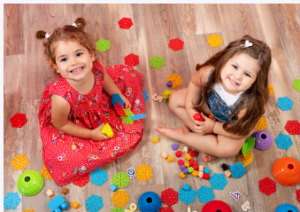Child care centres are Australia’s most popular type of formal child care. They provide children with a safe and nurturing environment where they can learn through play.
 Adelaide’s good childcare centre will have educators who form meaningful relationships with children. They will also immerse children in group learning situations to build resilience and social intelligence. For more childcare centre activities Adelaide, check this out.
Adelaide’s good childcare centre will have educators who form meaningful relationships with children. They will also immerse children in group learning situations to build resilience and social intelligence. For more childcare centre activities Adelaide, check this out.
Music
Providing opportunities for children to sing, dance and play musical instruments builds many pre-reading and learning skills. Singing songs like Heads, Shoulders, Knees, and Toes from the Wiggles can help develop coordination.
Research-based music classes for babies, toddlers, preschool children, and parents. Nurture a child’s natural aptitude for music in a joyful, nurturing environment. They are kindling a love of music for life!
Dance
Children can get creative with music, art and dance by taking classes. Adelaide has plenty of kids’ classes that nurture their creative side and give them confidence.
Mr Oopy, a children’s performer, brings fun and varied entertainment to childcare centres. It utilises their visual, spatial and kinaesthetic skills. Intergenerational playgroups link older adults with children, fostering respect and consideration. They also learn to work together as a team.
Art
Taking part in drama, art and music classes is an excellent way for kids to release their creative side. Adelaide has a variety of tuition options to choose from that are available during school terms.
Library
Childcare centres in Adelaide offer a range of library activities. These include Baby Bounce & Rhyme sessions, storytelling for pre-schoolers, and school holiday programs.
Through Relationships: The best childcare Educators spend time building meaningful relationships with children to build the social competence and emotional security needed for learning.
Council libraries across SA host weekly Story Time sessions for 2-5-year-olds. These are fun and interactive sessions with nursery rhymes, action songs and percussion instruments.
Outdoor play
Kids love nature, but many centres struggle to include outdoor play. Ask your centre how they promote the benefits of nature play to children and their parents.
Take a hike and explore the stunning Morialta Conservation Park – slip, slop, slap and wrap to enjoy the best rock pools in Adelaide.
Join the global movement and celebrate International Mud Day on 29 June. Kids of all ages and abilities will enjoy getting muddy!
Sensory play
Sensory play is any activity that stimulates one or more of a child’s senses. It includes touch, smell, sight, sound, taste, movement, balance, and proprioception.
This kind of play builds nerve connections in the brain’s pathways. It’s beneficial for kids with sensory issues. For more childcare centre activities Adelaide, check this out.
For example, feeling a food that puts them off eating it can help encourage children to eat it.
Cooking
Children are encouraged to cook, bake and eat healthy food in a safe environment. They learn to measure, pour liquids and solids, sift flour, squeeze oranges and more.
Visiting the local aged care village is an essential way for children to understand the value of compassion & and consideration. Helping Hand residential care in North Adelaide runs intergenerational playgroups each Wednesday during school terms.
Outdoor learning
Childcare centres that embrace outdoor learning environments allow children to reap the benefits of playtime in nature. The outdoors is the best place for children to practice and master emerging motor skills.
It also fosters cognitive development – for example, by inventing games, experimenting with perspective and exploring the properties of mud. Children learn the value of boundaries and rules by establishing them with their friends outdoors.
Physical activity
Physical activity is essential for children’s health and well-being. It helps children’s bones and muscles develop and grow, improves posture, strengthens muscles, improves coordination and balance, and increases energy.
Few childcare services have a daily physical activity policy or programmed time for developing fundamental movement skills. Childcare centres in rural areas and those serving higher socioeconomic families are more likely to have these policies and practices.
Library
The best childcare centres have caring relationships that support young children’s emotional and social well-being. These form the foundations for their learning and build the confidence to transition into formal schooling.